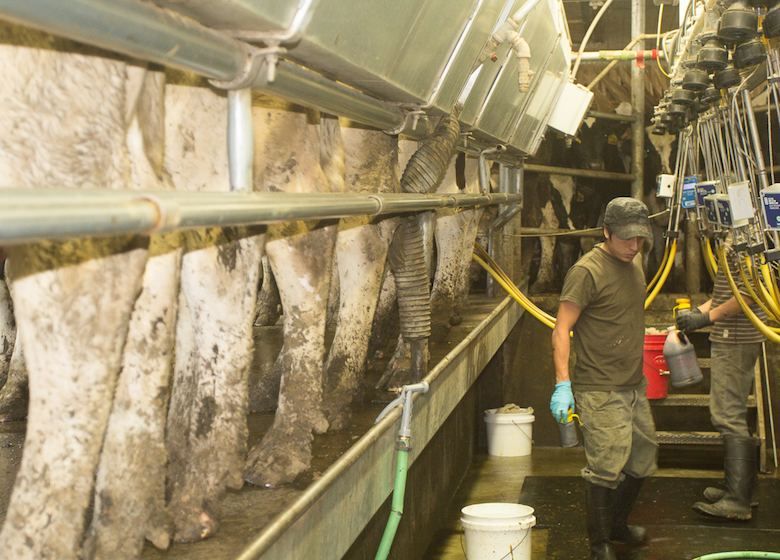South Dakota Immigrant Problem Stems from Moral Slide

American consumers are conflicted. They want cheaply made abundance in the stores, but not environmental pollution. Cheap wages overseas is the answer.
We also want the new president to bring those jobs back home, while demanding high wages with pricey air and water regulations. Inflation will skyrocket—unless the low-paid foreign workers are lured to the US.
This is what the western Europeans wanted when they welcomed millions of immigrants from various Third World countries to their south. The same with the US over many decades.
A recent Associated Press article (“Puerto Ricans Could Ease South Dakota Dairy Labor Shortage”) reminds us of a still deeper moral decay in American culture: few people want to do menial, less glamorous work. The Vermont dairy barn in the photo above fits South Dakota as well. Hence, the AP story begins with “Unable to find enough workers to carry out the painstaking tasks of milk production, dairy producers in South Dakota hope to tap into a different labor force: unemployed residents of Puerto Rico.”
My dad grew up on a dairy farm in Vermont, but the option of bringing in cheap labor from poor countries wasn’t available back then. Not so today, the AP article continues: “It’s no secret that immigrant labor is crucial at many agricultural enterprises in the U.S. The American Farm Bureau Federation estimates that about 80 percent of the agricultural labor force is foreign born and over half is unauthorized to work in the U.S.”
The manufacturing sector will face the same dilemma when jobs are brought back home. More and more immigrants will be enticed to the US to avoid paying native Americans high wages and to keep prices and inflation down. The same workers will be doing the work, whether they work in their home country or here in America.
It’s a rare conservative in South Dakota who is willing to own up to the underlying moral problem. Walt Bones is the exception, according to the AP story: “For those who doubt the need of foreign-born workers on dairy farms, Walt Bones, part owner of the Turner County Dairy and former South Dakota secretary of agriculture, has a succinct answer: U.S.-born workers don’t want to work that hard.
“’They’re not hungry enough to improve themselves that they don’t want to work that hard. I think it’s that simple,’ said Bones, whose dairy farm has 1,600 cows that are milked three times a day. ‘It’s not easy work. It’s repetitive, but at the same time, it’s not bad work.’”
Will the day come when South Dakota dairy operations will move to places like Puerto Rico? I tried to make this case earlier in “US Agriculture Will Be Outsourced to Latin America. Wait and See.” Either way, the workers will be the same, the difference being that the owner managerial class will move to Puerto Rico. We’ll still get cheap milk.